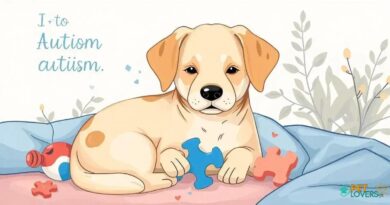What is Pet loss
Understanding Pet Loss
Pet loss refers to the emotional and psychological pain experienced when a beloved pet passes away. This phenomenon is often underestimated, as many people view pets as mere animals rather than integral members of the family. The grief associated with losing a pet can be profound and multifaceted, encompassing feelings of sadness, anger, and even guilt. Understanding pet loss is crucial for pet owners to navigate their emotions during this challenging time.
The Stages of Grief in Pet Loss
Similar to human loss, pet loss can trigger a range of grief stages. These stages often include denial, anger, bargaining, depression, and acceptance. Each individual may experience these stages differently, and the duration of each stage can vary significantly. Recognizing these stages can help pet owners understand their feelings and find healthy ways to cope with their loss.
Common Reactions to Pet Loss
When faced with pet loss, individuals may exhibit various emotional and physical reactions. Common responses include crying, withdrawal from social activities, changes in appetite, and difficulty sleeping. Some may also experience a sense of emptiness or loneliness, as the daily routines that involved their pet are suddenly disrupted. Acknowledging these reactions is essential for healing.
Support Systems for Pet Loss
Finding support during the grieving process is vital for those experiencing pet loss. Many pet owners benefit from talking to friends and family who understand their bond with their pet. Additionally, support groups and online forums dedicated to pet loss can provide a safe space for sharing feelings and experiences. Professional counseling may also be beneficial for those struggling to cope with their grief.
Memorializing Your Pet
Creating a memorial for a deceased pet can be a therapeutic way to honor their memory. This can take many forms, such as planting a tree, creating a scrapbook, or holding a small ceremony. Memorials serve as a tangible reminder of the love shared and can help facilitate the healing process. Engaging in such activities allows pet owners to celebrate their pet’s life and the joy they brought.
Understanding the Impact of Pet Loss on Families
Pet loss can affect not only the primary caregiver but also other family members. Children, in particular, may struggle to understand the concept of death and may need additional support to process their feelings. Open discussions about grief and loss can help families navigate this difficult time together, fostering a supportive environment for healing.
Pet Loss and Mental Health
The emotional toll of pet loss can significantly impact mental health. Some individuals may experience symptoms of depression or anxiety following the loss of their pet. It is essential to recognize these feelings and seek help if they become overwhelming. Mental health professionals can provide valuable resources and coping strategies to help individuals manage their grief effectively.
Finding Closure After Pet Loss
Achieving closure after pet loss is a personal journey that varies for each individual. Some may find solace in rituals, while others may prefer to reflect quietly on their memories. It is important to allow oneself the time and space to grieve fully. Understanding that closure does not mean forgetting can help pet owners find peace in their memories.
Resources for Coping with Pet Loss
Numerous resources are available for those coping with pet loss. Books, websites, and hotlines dedicated to pet grief can offer guidance and support. Many veterinary clinics also provide information on pet loss resources, including counseling services. Utilizing these resources can help individuals feel less isolated in their grief and provide them with tools to navigate their emotions.



